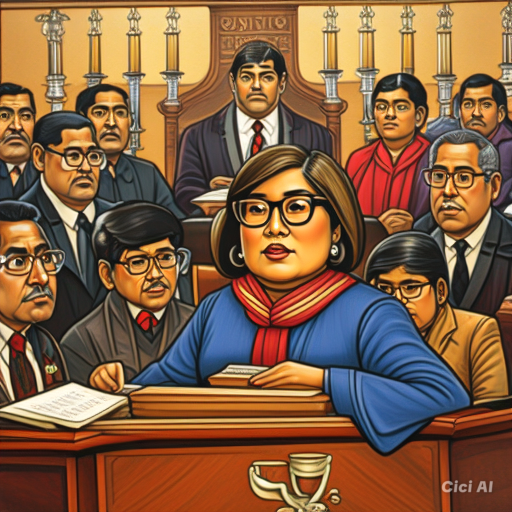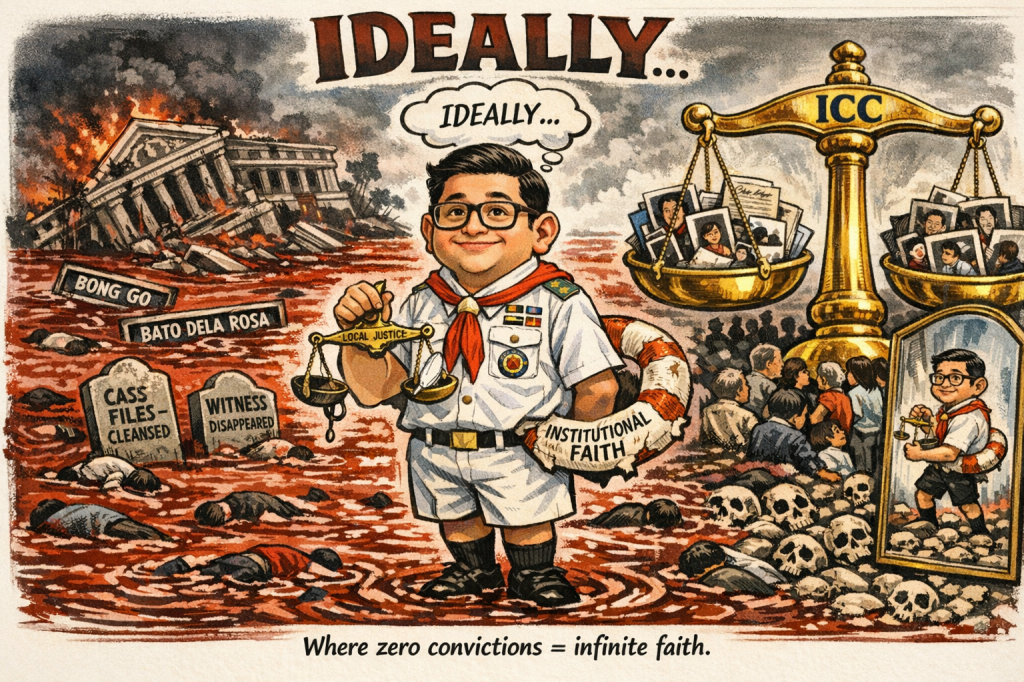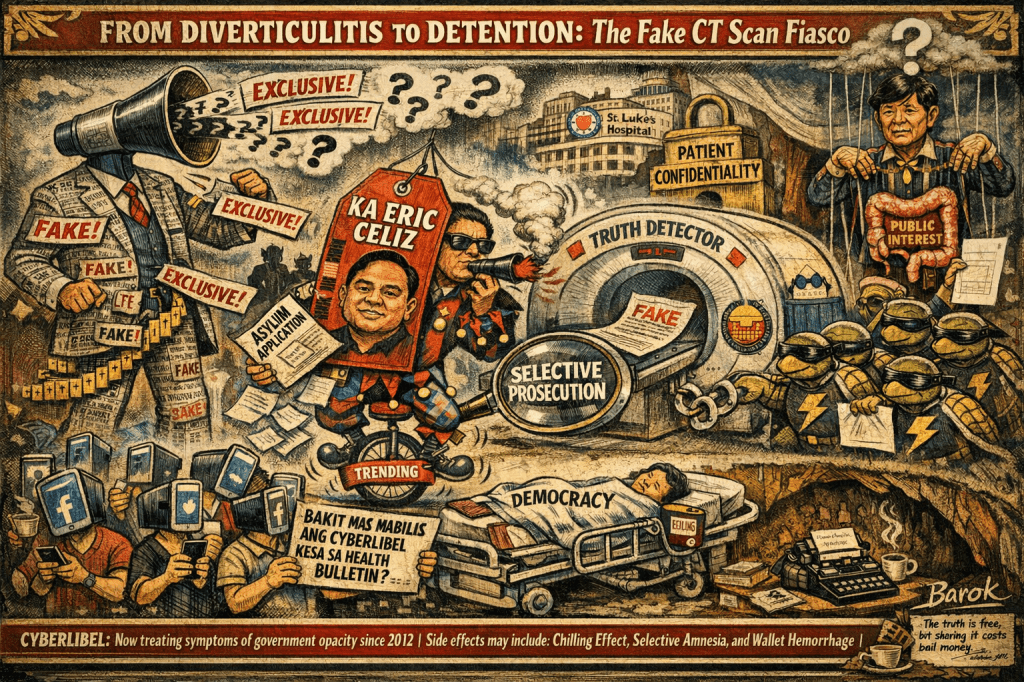By Louis ‘Barok‘ C. Biraogo
The acquittal of former senator Leila de Lima in her final drug-related case marks a significant moment in Philippine legal history, reflecting on the principles of justice and the robustness of the country’s legal system. The decision by Muntinlupa City Regional Trial Court (RTC) Branch 206 Presiding Judge Gener Gito was a culmination of nearly seven years of legal battles, which saw de Lima detained under charges brought during the administration of former President Rodrigo Duterte. Here, we analyze the court’s ruling, its alignment with legal precedents, and the arguments for and against the decision.
Arguments Supporting the Acquittal
1. Insufficient Evidence of Conspiracy
The cornerstone of Judge Gito’s ruling was the insufficiency of evidence to establish a conspiracy to commit illegal drug trading. According to the court, the prosecution failed to prove the existence of a conspiracy among de Lima and her co-accused. The testimonies of the nine prosecution witnesses were deemed inconsistent and unreliable. This aligns with the principle that convictions should be based on credible and consistent evidence, as underscored in People v. Lopez (G.R. No. 133894, March 10, 2000), where the Supreme Court held that inconsistencies in witnesses’ testimonies could undermine the prosecution’s case.
2. Reliability of Witnesses
The court noted that the prosecution relied heavily on witnesses whose credibility was questionable. For instance, Herbert Colanggo’s testimony did not directly implicate de Lima in the illegal drug trade. The principle of evaluating the credibility of witnesses is critical, as established in People v. Abaya (G.R. No. 123142, February 5, 1998), where the Supreme Court emphasized that testimonies must be credible and convincing to support a conviction.
3. Application of the Res Inter Alios Rule
The court highlighted that much of the evidence presented was hearsay, falling under the res inter alios acta rule, which states that transactions between other parties are inadmissible against a defendant. This principle is upheld in People v. Webb (G.R. No. 127262, November 13, 1995), where the Supreme Court reiterated that hearsay evidence is inadmissible unless it falls under specific exceptions.
4. Previous Acquittals and Same Witnesses
The use of the same witnesses in de Lima’s earlier acquittals in Criminal Case Nos. 17-165 and 17-166 further weakened the prosecution’s case. The Supreme Court in **People v. Salamat** (G.R. No. 121551, July 5, 2000) recognized that repeated reliance on the same discredited witnesses could lead to acquittals.
Arguments Against the Acquittal
1. Public Interest and Gravity of Charges
Critics argue that the gravity of the charges against de Lima, involving serious allegations of drug trafficking, warranted a more exhaustive presentation of evidence. They may cite People v. Mateo (G.R. No. 147678-87, July 7, 2004), where the Supreme Court emphasized the importance of thorough judicial review in cases of serious public concern.
2. Potential Bias and Political Influence
There are concerns about potential biases and political influences in the judicial process, which could affect the impartiality of the ruling. While no direct evidence of bias has been presented, the principle of judicial impartiality is enshrined in **People v. Serrano** (G.R. No. 130633, February 19, 2001), which underscores the necessity for judges to remain neutral and unbiased.
3. Reconsideration of Acquittal
While generally, an acquittal cannot be appealed due to the principle of double jeopardy, the prosecution may argue for a motion for reconsideration on the grounds of grave abuse of discretion. The precedent set in Lejano v. People (G.R. No. 176389, December 14, 2010) allows for the possibility of reconsidering an acquittal if there is substantial evidence of judicial overreach or error.
The Court’s Ruling and Recommendations
In making a ruling, the court meticulously analyzed the evidence and testimonies, ultimately determining that the prosecution failed to meet the burden of proof required to establish a conspiracy to commit drug trading. This decision underscores the importance of credible evidence and the protection of individual rights against unfounded charges.
Conclusion
The acquittal of Leila de Lima reaffirms the necessity of robust and credible evidence in criminal prosecutions. It underscores the judiciary’s duty to uphold the rule of law, free from political influence and bias. Moving forward, it is essential that legal processes remain transparent, impartial, and just, ensuring that all individuals receive a fair trial based on the merits of the case and the integrity of the evidence presented.

- From “Never Again” to “Ideally Here”: How Bam Aquino Defended the Impunity Machine

- From Diverticulitis to Detention: How a Fake CT Scan Landed Critics in the NBI Crosshairs

- Marcos’ “Teachers First” Mirage: ₱10,000 Allowance or Just Another Vote-Buying Photo-Op?

- Dizon’s Maharlika Highway Exclusive Club: Only Billion-Peso Boys Allowed (Small Contractors Need Not Apply)

- 2028 Elections Just Got Bloodier: Sara Declares War on Marcos While Impeachment Complaints Line Up Like Jeepneys in EDSA

- From Barangay Captain to Cabinet: Why 73% of Filipinos Think Bribery Is the Only Government Service That Actually Works

- Why Duterte Got the Fast-Track to The Hague but Bato & Bong Go Deserve a Full Constitutional Pageant

- Marcoleta’s Treason Fantasy: Why Charging Carpio for Peacetime “Betrayal” Is the Dumbest Thing You’ll Read This Week









Leave a comment